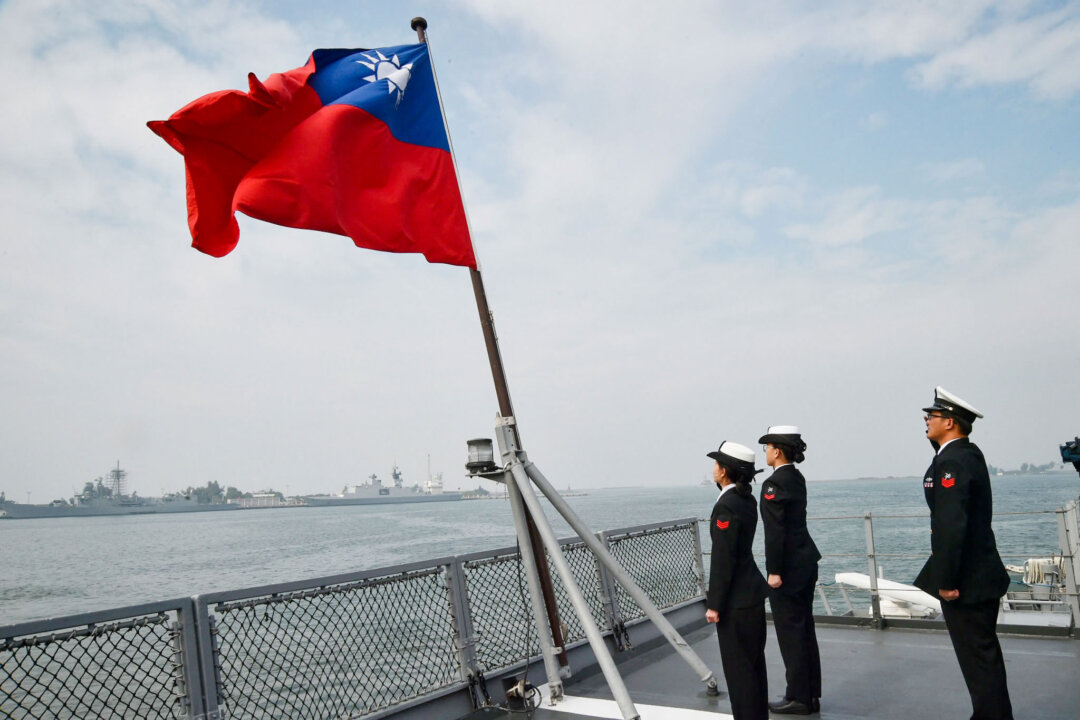‘China has for a long time used various means to infiltrate, coerce, and suppress Taiwan,’ a presidential office spokesperson said.
TAIPEI, Taiwan—Four former Taiwanese soldiers, including three who once served as armed military guards at the island’s presidential office building, have been indicted on charges related to selling state secrets to communist China, according to the island’s prosecutors and defense ministry.
The Taipei District Prosecutors Office announced the case on Dec. 6, saying that the four defendants had been detained. They are accused of pocketing a combined total of about NT$1.8 million (about $55,600) in connection with the scheme.
The three former military guards—identified only as Lai, Li, and Lin—were part of the military police’s 211th battalion. The fourth defendant, Chen, once served in the Information, Communications, and Electronic Force Command under the Ministry of National Defense.
Lai, Li, and Chen all retired between July 2023 and February, and Lin was suspended from his military service in August. Before retirement, both Lai and Li held the rank of staff sergeant, while Chen was a private first class and Lin was a corporal.
Chinese intelligence agents successfully recruited Lai and Chen via another suspect surnamed Huang, who is currently at large and wanted by Taiwanese authorities, according to prosecutors.
The scheme started in April 2022, when Chen used his cellphone to take photos of classified documents at his workplace before passing them on to Lai, according to prosecutors. Lai would then hand over the documents to Huang or a Chinese intelligence official, prosecutors said.
In early 2023, Chen also started using an alias to recruit fellow soldiers to become Chinese spies, according to prosecutors.
Lai also allegedly took photos of classified documents and passed them on to Chinese intelligence agents before he was transferred to a new unit in October 2022.
Lai then recruited Li to continue the scheme, according to prosecutors. Li allegedly had Lin carry on the scheme in January after his retirement.
Chinese intelligence agents awarded the four defendants money based on the sensitivity of the information that they provided, according to prosecutors.
Prosecutors estimated that Lai received NT$460,000, Chen received NT$450,000, Li received NT$664,100, and Lin received NT$265,900.
The four are charged with allegedly violating the Anti-Corruption Act and the National Security Act.
On Dec. 6, Taiwan’s defense ministry issued a statement, saying it became aware of the alleged misconduct after a tip from soldiers in July 2023. The ministry then notified the National Security Bureau and related agencies to conduct an investigation.
The defense ministry said it will continue counterintelligence education, strengthen people’s awareness of national security, and work closely with the government’s national security teams to prevent future espionage incidents.
In a statement, Wen Lii, a spokesperson for Taiwan’s presidential office, condemned “any treasonous act that harms the people and the country,” according to the government-run Central News Agency (CNA).
“China has for a long time used various means to infiltrate, coerce, and suppress Taiwan, and intends to divide and destroy the hard-won democracy and freedoms of the Taiwanese people,” Lii said. “As a result, both soldiers and civilians must be united to protect our homeland.
“If any officers and soldiers commit treason or betray the people for personal gain, it will be extremely disgraceful and should be severely condemned and punished by law.”
China’s communist regime claims Taiwan as a part of its territory and has threatened to bring the island under its rule, by force if necessary. Taiwan, a de facto independent nation, has a democratically elected government, military, constitution, and currency.
In recent years, there have been numerous instances of espionage in Taiwan.
In September, 23 people, including eight active servicemen, were charged with spying for China, according to CNA. The eight servicemen came from the army, navy, air force, and coast guard.
Also in September, a former air force lieutenant colonel was sentenced to 17 years in prison for Chinese espionage, according to CNA.
In August, eight active and former military personnel received prison terms of between 18 months and 13 years for providing China with classified intelligence or propaganda material.

